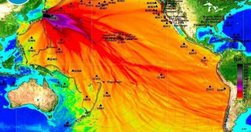Filter 252 resources:
clear all ×- news (98)
- facebook (72)
- social media (55)
- us2020 (53)
- media (42)
- factchecking (33)
- trump (24)
- algorithm (24)
- filter bubble (23)
- psychology (19)
- covid19 (18)
- twitter (18)
- ai (18)
- conspiracy (15)
- delegitimise (15)
- censorship (15)
- politics (13)
- us (11)
- trust (11)
- democracy (10)
- journalism (10)
- polarization (10)
- science (9)
- russia (9)
- domestic (9)
- bot (8)
- media literacy (8)
- propaganda (8)
- cambridge analytica (7)
- newsletter (7)
- troll (7)
- post-truth (7)
- cognitive (7)
- vote (7)
- qanon (7)
- suppress (6)
- backfire effect (6)
- google (6)
- eu (6)
- brexit (5)
- science communication (5)
- regulation (5)
- identity (5)
- framework (5)
- curation (5)
- inoculation (4)
- blm (4)
- science journalism (4)
- climate (4)
- sceptic (4)
- advertising (4)
- hate (4)
- antivaxxer (4)
- youtube (3)
- wikipedia (3)
- infowar (3)
- deep fake (3)
- nlp (3)
- storytelling (3)
- persuasion (3)
- design (3)
- narratives (3)
- fediverse (3)
- community (3)
- confirmation bias (3)
- populism (2)
- share (2)
- hoaxy (2)
- local (2)
- infopocalypse (2)
- moderation (2)
- bias (2)
- history (2)
- truth (2)
- knowledge management (2)
- llm (2)
- jeff jarvis (2)
- (2)
- education (2)
- metrics (2)
- machine learning (2)
- debunk (2)
- misinform (2)
- medium (2)
- privacy (2)
- groupthink (2)
- comments (2)
- outrage (2)
- computational propaganda (2)
- augmented reality (2)
- europe (2)
- marketing (2)
- free speech (2)
- publicsphere (2)
- blockchain (2)
- pink slime (2)
- tribe (2)
- flicc (2)
- tool (2)
- circuit-breaker (1)
- cui bono (1)
- peace data (1)
- information laundering (1)
- plandemic (1)
- ginsburg (1)
- section230 (1)
- participatory culture (1)
- splinternet (1)
- fleeting (1)
- arg (1)
- plato (1)
- label (1)
- eurosceptics (1)
- signal2noise (1)
- yanss (1)
- bluesky (1)
- chatgpt (1)
- binggpt (1)
- joan westenberg (1)
- ai4communities (1)
- atprotocol (1)
- insurrection (1)
- futurism (1)
- ux (1)
- framing (1)
- participation (1)
- society (1)
- top3pods (1)
- data journalism (1)
- psychometrics (1)
- guide (1)
- china (1)
- inscrutable (1)
- communications (1)
- viral (1)
- memory (1)
- polbot (1)
- instant articles (1)
- metaphor (1)
- meme (1)
- semantic (1)
- fakebox (1)
- knowledge panel (1)
- wikitribune (1)
- ethics (1)
- define (1)
- bbc (1)
- gamification (1)
- culture (1)
- ec (1)
- geopolitics (1)
- power (1)
- mobocracy (1)
- eaststratcom (1)
- search (1)
- native advertising (1)
- open web (1)
- omission (1)
- motivated (1)
- bullshit (1)
- reflectivity (1)
- engagement (1)
- hoax (1)
- crowdsourcing (1)
- schema.org (1)
- law (1)
- automation (1)
- slow news (1)
- storyful (1)
- european (1)
- uk (1)
- negativity bias (1)
- philosophy (1)
- truth psychology (1)
- “illusory (1)
- coda (1)
- italy (1)
- library (1)
- trending (1)
- authoritarianism (1)
- multilingualism (1)
- app (1)
- counter speech (1)
- radio (1)
- usa (1)
- apple (1)
- open source (1)
- rss (1)
- image (1)
- open science (1)
- api (1)
- election (1)
- australia (1)
- iot (1)
- europa (1)
- photography (1)
- surveillance (1)
- expert (1)
- postmodern (1)
- civil rights (1)
- publicsector (1)
- pinterest (1)
- disgustology (1)
- data void (1)
- collective intelligence (1)
- posse (1)
- indieweb (1)
- digital civility (1)
- interoperability (1)
- geofence (1)
- blackpr (1)
- yeats (1)
- pluralistic ignorance (1)
- machine text (1)
- data portability (1)
- philippines (1)
- euvsdisinfo (1)
- bundle (1)
- echo chamber (1)
- dissonance (1)
- gpt-x (1)
Relevant Overviews
- Content Strategy
- Online Strategy
- Online Community Management
- Social Media Strategy
- Content Creation & Marketing
- Digital Transformation
- Personal Productivity
- Innovation Strategy
- Disinformation in the US 2020 elections
- Communications Tactics
- Psychology
- Social Web
- Media
- Politics
- Science&Technology
- Business

Perfectly open communities always go sour. You need filters. Every functional community has them. And that’s where machine learning comes in... If you can detect trolls, you can protect the people they’re trolling by muting or putting a warning over the trolls’ posts... Twitter... already have a way of screening out porn. Why don’t they do the sam…

a lot of people don’t know fake news when they see it, sensationalized reports are more likely to go viral on social media than sane ones, and distrust of traditional (and genuinely more reliable) media sources is rising. Professor Nicole A. Cooke ... focusing on human information behavior, information literacy, and diversity in librarianship.... …
There’s bad information out there that’s not necessarily fake. It’s never as clear-cut as you think... Facebook’s algorithm may not understand the various shades of falsehood. Facebook could tweak its algorithm to promote related articles from sites like FactCheck.org so they show up next to questionable stories on the same topic in the news fee…

Preteens and teens ...often clueless about evaluating the accuracy and trustworthiness of what they find... 82% of middle-schoolers couldn’t distinguish between an ad labeled “sponsored content” and a real news story... according to a Stanford University study of 7,804 students

As Facebook attempted to capture the fast-moving energy of the news cycle from Twitter... it built a petri dish for confirmation bias... Here’s how... ‘Share’ Button ... encouraging people to share quickly and without much thought... “original sharing,” where people post their own photos, text updates... was declining..., content from celebritie…

“So all the fact-checking of Trump’s lies, all the investigative journalism about his failures, even the tapes — none of it meant anything.” In short, what happened to news ...? determining what counts as journalism and who counts as a journalist is a perpetual struggle ... No single trend explains the dissolution of news... What we ended up with…
If you think this election is insane, wait until 2020... technologies like AI, machine learning, sensors and networks will accelerate. Political campaigns get ... so personalized that they are scary in their accuracy and timeliness. The single most important factor influencing your voting decision is your social network… so you can bet that politi…
over 30 news organizations ... and tech companies such as Facebook, Twitter, and YouTube to share best practices on how to verify true news stories and stop the spread of fake ones.

Following the controversial firing of the editorial team who managed the Trending Topics... technology that will help prevent fake news stories from showing up in the Trending section.

image... apparently shows the spread of radiation from the Fukushima nuclear accident... being shared widely ... despite the fact that it... shows the wave height of the tsunami... you might want to doublecheck before hitting Share... here’s how

From a nondescript office building in St. Petersburg, Russia, an army of well-paid “trolls” has tried to wreak havoc all around the Internet — and in real-life American communities.
Loading more...
Relevant Overviews
- Content Strategy
- Online Strategy
- Online Community Management
- Social Media Strategy
- Content Creation & Marketing
- Digital Transformation
- Personal Productivity
- Innovation Strategy
- Disinformation in the US 2020 elections
- Communications Tactics
- Psychology
- Social Web
- Media
- Politics
- Science&Technology
- Business
